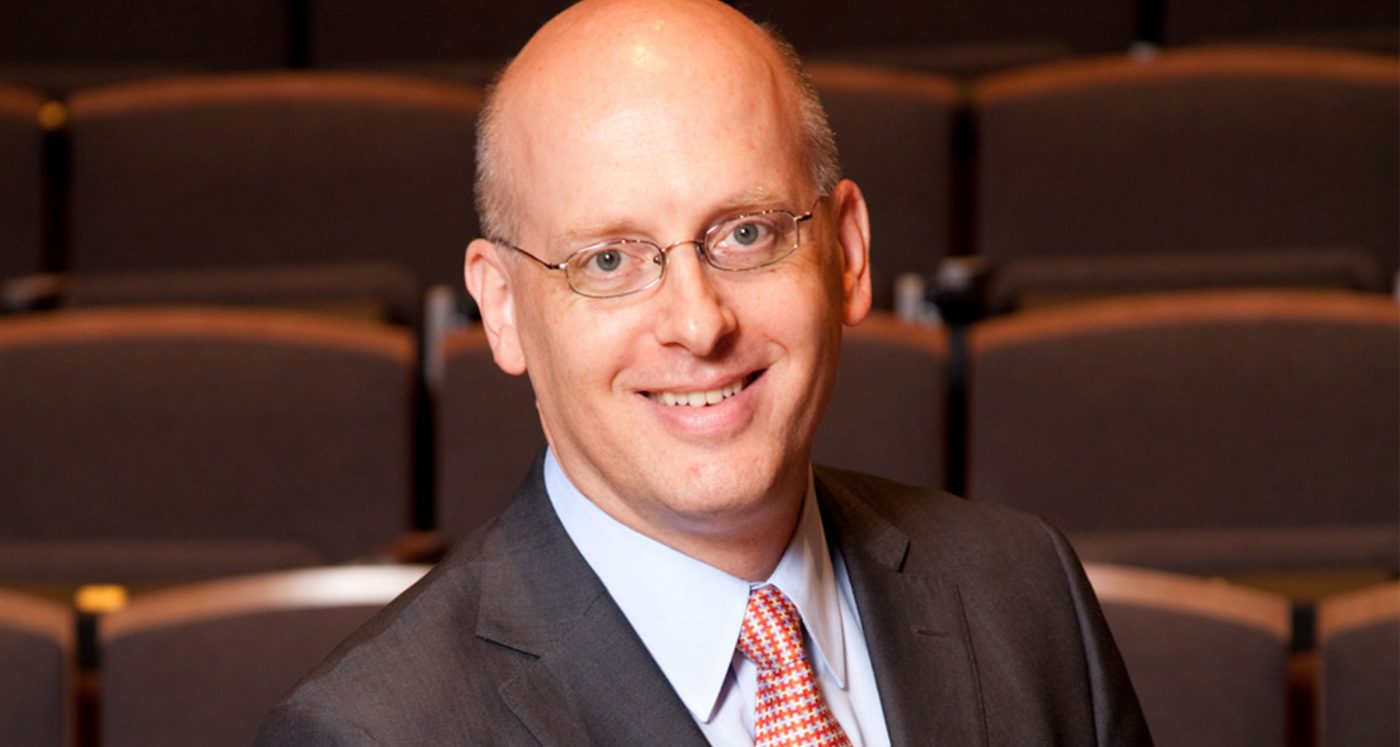- News
- UBC School of Music’s Dr. Richard Kurth: Music is the Furnace of Your Being
UBC School of Music’s Dr. Richard Kurth: Music is the Furnace of Your Being

The UBC School of Music has a wealth of student talent, from performers, to theorists; from musicologists to mix-masters. The faculty’s quarterly publication High Notes talked to Director of the School, Dr. Richard Kurth, about music, music education, and society at large.
By Emma Lancaster
In a world where technology and science are moving forward at an incredible pace, and education is increasingly focused on employment skills, studying music can seem like an anachronistic choice. But not for Richard Kurth. “For me, the definition of music would be: coordinating the body, the mind, the imagination and expression into a single activity that can draw on all of them. That’s why we love music. We are charging our whole being–physically, intellectually, emotionally–using music as a way of getting everything fired up as intensely as possible. Music is like the furnace of your being.”
The way our culture experiences music has definitely been affected by technology-driven changes. “It’s actually hard to grasp how much the whole musical culture has changed in the last few decades. In many ways the changes are extraordinarily positive because we have now access to much more music and a greater diversity of musical traditions than we ever had, or could have had, in the past,” he says. “We have music of other cultures available to us; we can revisit the music of the past with a few keystrokes. Music used to be very hard to acquire, now it’s easy.”
That ease of acquisition paradoxically makes Kurth uneasy. “In the past, music was something you did, by singing or playing. Now for many people it’s something you own.” That slippery slope inspires Kurth in his work at UBC. “I think it’s important that we do everything we can to ensure that music remains a participatory culture–not just something we surround ourselves with, but something we do.” He includes running to music, dancing to it, playing a guitar alone, and listening to great jazz in a club as ways that people can engage actively and keep their own furnace burning, in addition to the obvious activities of performing and studying that take place at the School.
Students of all faculties can reap the benefits of this participatory philosophy. Ensembles from the UBC African, Balinese, and Korean music ensembles to the many choirs, jazz ensembles, orchestra, and others are open to students from outside the School of Music. And there are almost daily opportunities for the public to hear students and faculty perform.
“We want the school to be diverse in terms of where people are coming from; and diverse in the types of music that we make–music of different cultures, but also music from all of the long and multicultural Western tradition as diversely as possible, across history and cultural geography; because all the countless forms of music are different manifestations of human experience, and we learn from them all,” he says.
Despite, or perhaps because of this diversity, Kurth celebrates the School’s unity of purpose and dedicated teachers. “We all want to listen really closely to what we’re hearing, no matter what kind of music it may be. We all believe that music is very deep in nuance; we engage by contemplating it, and focusing on it, imagining it anew, and performing it.”
Music surrounds us in contemporary culture, and Kurth sees contemporary talent shows like American Idol as important in that they are very public–they make people excited to see the process and hard work behind every performance. He’s hopeful that the individual stardom these types of shows celebrate is secondary to the sharing of music that’s the backbone of his own philosophy. “It’s got to be for everybody. Young people who are training to be artists need to focus on acquiring skills and confidence to be ready to get up on stage; but once they’re there, it has to be to give to other people. It can’t be only about the performer–it’s got to be for everybody else. Talent is called a gift, because you are called to share it.”
The concert experience is also an opportunity for participation. “When our students perform on stage, they’re demonstrating their commitment. They’re showing human nature in one of its really productive and positive forms. Going to concerts should give you a feeling, as a listener, that you’ve participated with others in something really exciting and moving, a celebration of creative energy and human spirit. And you listen better at a concert because other people are listening with you.”
As listeners, our personal experiences of music are constantly changing or filling in; allowing us to see the same world in a different light, or reinterpret familiar knowledge. As we re-experience favourite pieces or hear new ones, our world grows richer and more nuanced, and our creative fires are kept stoked. Kurth believes that’s an opportunity that music and all the arts afford us. “They nourish us,” he says simply.
